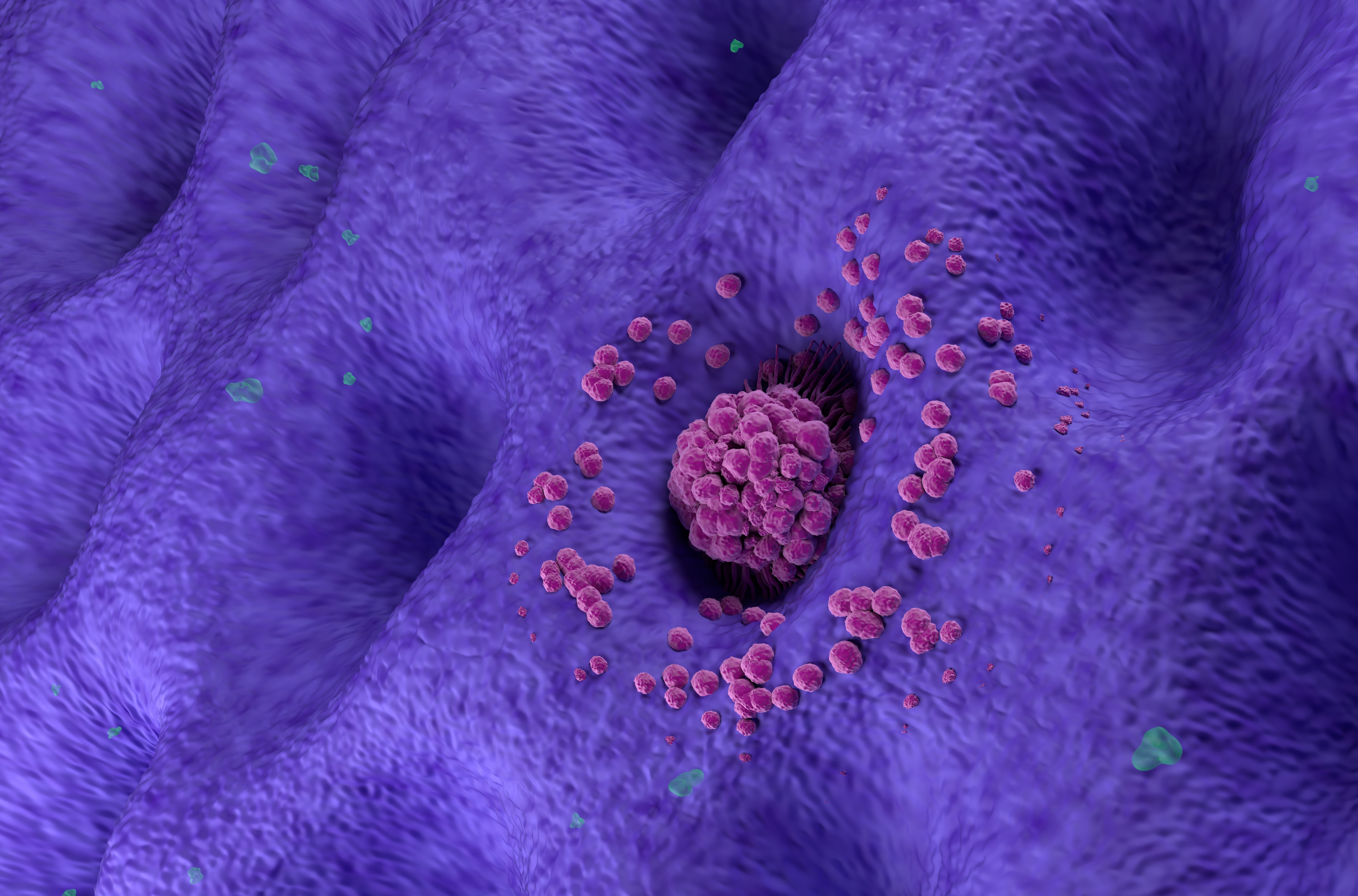Tislelizumab Scores FDA Approval in Advanced Gastric and GEJ Cancers
The FDA has approved tislelizumab plus chemotherapy for the treatment of patients with newly diagnosed, locally advanced or metastatic gastric and gastroesophageal junction adenocarcinoma.
Gastric/GEJ tumor: ©LASZLO - stock.adobe.com

- Tiselizumab (Tevimbra), an anti–PD-1 monoclonal antibody, plus chemotherapy for the first-line treatment of gastric or gastroesophageal junction (GEJ) cancer has been approved by the FDA.
- Results from the phase 3 RATIONALE-305 trial (NCT03777657) support this approval.
- In the study, tislelizumab given in combination with chemotherapy demonstrated a 20% reduction in the risk of disease progression or death.
The FDA has granted approval to the combination of tislelizumab, an anti–PD-1 monoclonal antibody, and fluoropyrimidine- and platinum-containing chemotherapy for the treatment of patients with newly diagnosed, locally advanced or metastatic gastric and GEJ adenocarcinoma.1
Findings from the global phase 3 RATIONALE-305 trial support this regulatory decision. The primary end point of overall survival (OS) was met in the study with the median OS being 15.0 months for patients treated with tiselizumab plus chemotherapy compared with 12.9 months for patients treated with placebo plus chemotherapy (HR, 0.80; 95% CI, 0.70-0.92; P =.0011).
With the tislelizumab plus chemotherapy combination, a higher overall response rate was seen at 47.3% vs 40.5% with placebo plus chemotherapy. The median duration of response was 8.6 months in the tislelizumab/chemotherapy arm vs 7.2 months in the placebo/chemotherapy arm.
Additionally, the median progression-free survival was 6.9 months in the tislelizumab arm vs 6.2 months in the placebo arm (HR, 0.78; 95% CI, 0.67-0.90).2
Looking at safety, the safety profile of tislelizumab plus chemotherapy was manageable and in line with what has been previously reported of the individual agents.Among those given tislelizumab with chemotherapy, 53.8% of patients experienced grade 3 or higher treatment-related adverse events (TRAEs) vs 49.8% in the placebo arm. Further, the most common TRAEs of any grade were nausea, decreased appetite, decreased platelet count, decreased neutrophil count, vomiting, and anemia.
In September 2024, the FDA’s Oncologic Drug Advisory Committee evaluated data from RATIONALE-305 when considering the benefits of checkpoint inhibitor therapy in patients with gastric/GEJ cancer with low PD-L1 expression.3
During the meeting, Mark Lanasa, MD, PhD, senior vice president and chief medical officer of solid tumors at BeiGene, tislelizumab’s sponsor, highlighted that there was no connection between PD-L1 score and immune-mediated AEs (IMAEs). The incidence of IMAEs in the overall population was 31% with tislelizumab vs 12% with placebo. In patients with PD-L1 tumor area positivity greater than 5, the rate of IMAEs was 29% with tislelizumab vs 13% with placebo.









